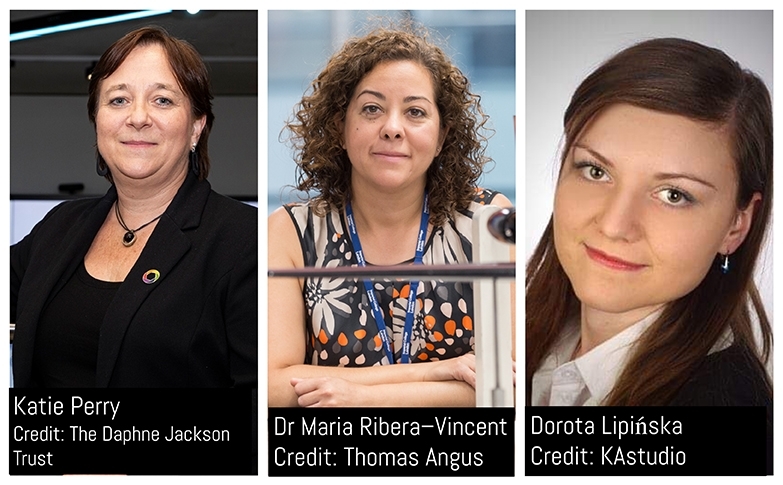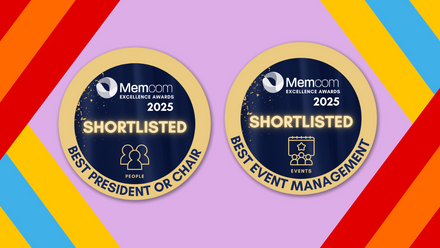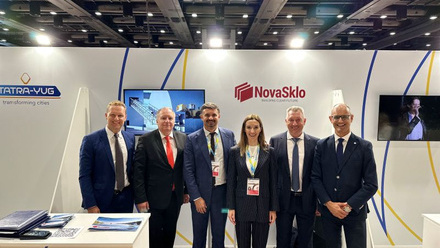Returning to work after a career-break, where to go for help?
Re-entering the workforce after a career break, no matter the reason, can be intimidating and challenging. How do you explain a CV-gap? How do you stay up-to-scratch on skills? How do you retain the same seniority as when you left? All are valid concerns and, luckily, ones you can get help with. Several trusts, firms and companies offer advice, programmes and returnships to help people back into work.

The Daphne Jackson Trust
Aiming to achieve the full potential of STEM scientists and engineers, the Daphne Jackson Trust works to return researchers to their careers.
The organisation does this by offering part-time Fellowships that allow for flexibility to make room for other commitments and provide a good balance between work and home life in the transitioning period.
Daphne Jackson Trust Chief Executive, Dr Katie Perry, explained that the trust has two different types of Fellowships for returners, which are:
The Regular Fellowship – a potential Daphne Jackson Fellow approaches the trust, after the initial eligibility assessment finds a host organisation and supervisor, then develops a proposal for their Fellowship. The trust then finds a suitable sponsorship. The Fellow cannot commence the Fellowship until sponsorship is in place.
The Sponsored Fellowship – an organisation agrees to sponsor or half sponsor a Fellowship, then the trust advertises this opportunity and tracks how many candidates come forward. After an initial sift by the trust to ensure the Daphne Jackson Trust eligibility criteria are met, the sponsoring organisation has involvement in the selection at this stage. This can be by way of face-to-face interviews or simply by assessing the CV and personal statement from the applicants.
To qualify for a Fellowship through the trust there are certain requirements that need to be met. These include for the career break to have lasted for at least two years, and the reason for the break to be either family, health or caring for others, as well as UK residency status or a right to remain in the UK, and being able to both speak and write English.
The full list of requirements can be found on the trust’s website and they accept calls on 01483 689166 during normal office hours Monday to Friday or you can email to get help. ‘We also have regular advertised opportunities, and we have a friendly small team in the office who are very happy to answer the phone to any possible applicants,’ Perry told Materials World.
She highlighted that the application process is fairly rigorous, and it can take between nine and 12 months from the first conversation with the trust to when they are ready to begin the new Fellowship.
‘Many Fellows have said that the application process is an excellent preparation for making a successful return to research,’ Perry said. ‘Although it can seem tough, there is a Fellowship Advisor assigned to each applicant who offers support, mentoring, guidance and advice throughout the application process and the Fellowship itself. The trust stays in contact with the vast majority of its former Fellows once they have completed their Fellowships and brings them together at the biennial Daphne Jackson Trust Conference.’
Katie Perry’s top three tips for returners:
- Contact the Daphne Jackson Trust
- Believe in yourself
- Learn how to network effectively
What a Fellowship means
A Daphne Jackson Fellowship allowed Dr Maria Ribera-Vincent to move her career closer to home after giving up a research position when having a second child.
Why did you reach out the Daphne Jackson Trust?
I saw the advert for career returners at jobs.ac.uk. At that point I was quite worried that the right opportunity to return would never happen, particularly because a long commute was out of the question with little kids.
Why did you leave STEM and how was it to come back?
I was working at the University of Southampton and commuting from Surrey. After my first child was born, I took him with me to the campus nursery, but it was complicated. He often fell asleep on the drive back, delaying his bedtime. Once he was sick in the car in the middle of the motorway. When I got pregnant with my second child, I felt that it would be too hard to continue with a long commute with two kids, one nearing school age. So very reluctantly I gave up my research job. Coming back was hard, as I did not have the flexibility to move around. The opportunity at the University of Surrey with a Daphne Jackson Fellowship was perfect, not only because it was near, but also because it was part time, and it helped me return while taking care of my young family.
What is your current role?
Right now, I am teaching at Imperial College. As a teaching Fellow, I teach some of our core modules to undergraduates, bringing pedagogic innovation and research into our programme. I maintain my research through supervision of final year individual projects and MSc projects.
Do you have any advice for someone in the process of re-entering the workforce?
My advice is to believe in yourself. The confidence drains very fast during a career break, but your knowledge and skills do not. You may need a refresher on some things, but within days you will be back to where you were
A STEM Returners success story
On moving back to the UK after finishing a Masters, Dorota Lipińska found it hard to get a job. That was when she reached out to STEM Returners.
How was your experience of the programme?
I joined the STEM Returners programme as I struggled to get into the engineering industry. It helped me find a suitable role where I could prove my abilities and develop my skills, as I was often rejected through the traditional recruitment process. The STEM Returners programme gives a different point of view for recruiters and allows them to notice what is not recognised during the standard process of recruitment.
After a 13-week placement, I continued as a permanent employee. I truly recommend the programme to people trying to re-start their career.
Why did you leave STEM and how was it to come back?
I finished my Master’s degree in Poland and moved to the UK to be with my partner. I was struggling to find my first position in the industry because of lack of relevant experience. I was working and volunteering, but not in the engineering field. However, I was constantly looking for opportunities within my profession.
It has been really great to come back, to build up more experience every day and regain confidence. I believe that my team made it easier for me through their support and by sharing of knowledge.
What is your current role?
I am working in BAE Systems Maritime Services as a Structural Engineer. I am involved in projects including the Queen Elizabeth Class aircraft carriers, Type 45 Destroyers and Hunt Class Mine Countermeasure Vessels.
My day-to-day work involves structural analyses using classical numerical method, writing technical reports and cooperation with design engineers. It has been a very challenging role, but every day is different, thus I am finding it exciting.
Do you have any advice for someone in the process of re-entering the workforce?
Re-entering the workforce can be very challenging, but you need to step out from your comfort zone to succeed. You should be open to new experiences, seek advice and take it humbly.
How does IOM3 support returners?
The Institute is conscious of the need to support individuals who for whatever reason have taken a career break, particularly when it comes to professional recognition, which can boost their career potential on re-entering the workforce. Since 1996, the attainment of both professional registration such as CEng, IEng and CEnv has been based on satisfying a competency framework. Such a metric requires sustained and continuous practice to achieve a satisfactory outcome, which can be challenging to achieve for those taking career breaks.
This, coupled with the skills agenda that many companies operating in the materials cycle sectors are pursuing, has led the Institute to re-think this model with respect to its own professional grades. From February 2020, the Institute will officially revert to the pre-1996 experienced-based assessment model for its Associate Member (AIMMM) and Professional Member (MIMMM) grades, with the exception of where the individual is seeking MIMMM for accreditation as a competent person with respect to minerals reporting. Those applying for AIMMM will need to have a minimum of three years’ working experience in a materials cycle sector or associated industry, and those for MIMMM will require at least four years’ working experience.
In addition, IOM3 has revised the academic thresholds associated with both grades such that AIMMM can be applied for on the basis of a Foundation degree/HND/L5 qualification and MIMMM can be applied for on the basis of a Bachelors’ degree. While the requirements for registration remain unchanged, the Institute believes this change will greatly enhance the career opportunities for those who have taken career breaks and is more relevant to the changing needs and circumstances of the working population in the 21st Century. A pilot programme has been underway to test these changes and the results have been extremely positive. A review of the initial results has been undertaken by members of the Institute’s Professional Standards and Development Board, which has highlighted the positive impact they have made.
Other places to go for help
- Wellcome Trust (re-entry Fellowships)
- Women Returners Professional Network
- Runneth







